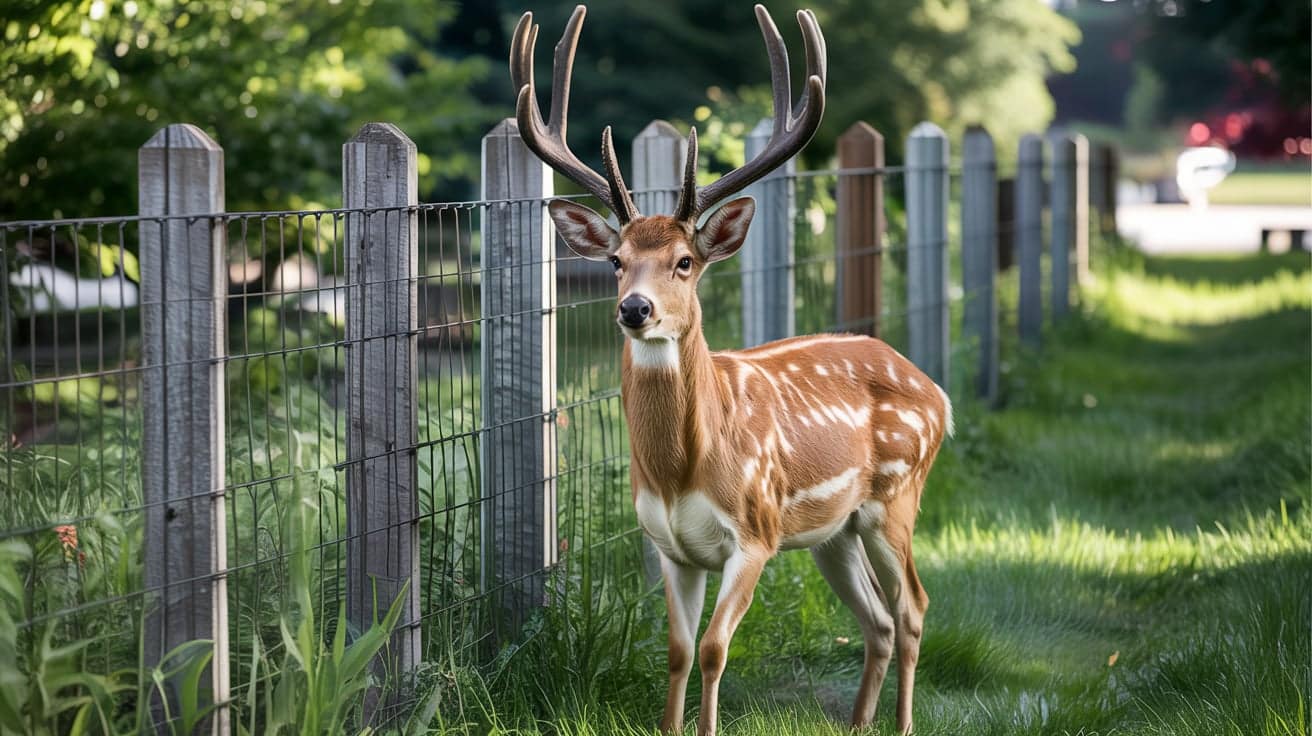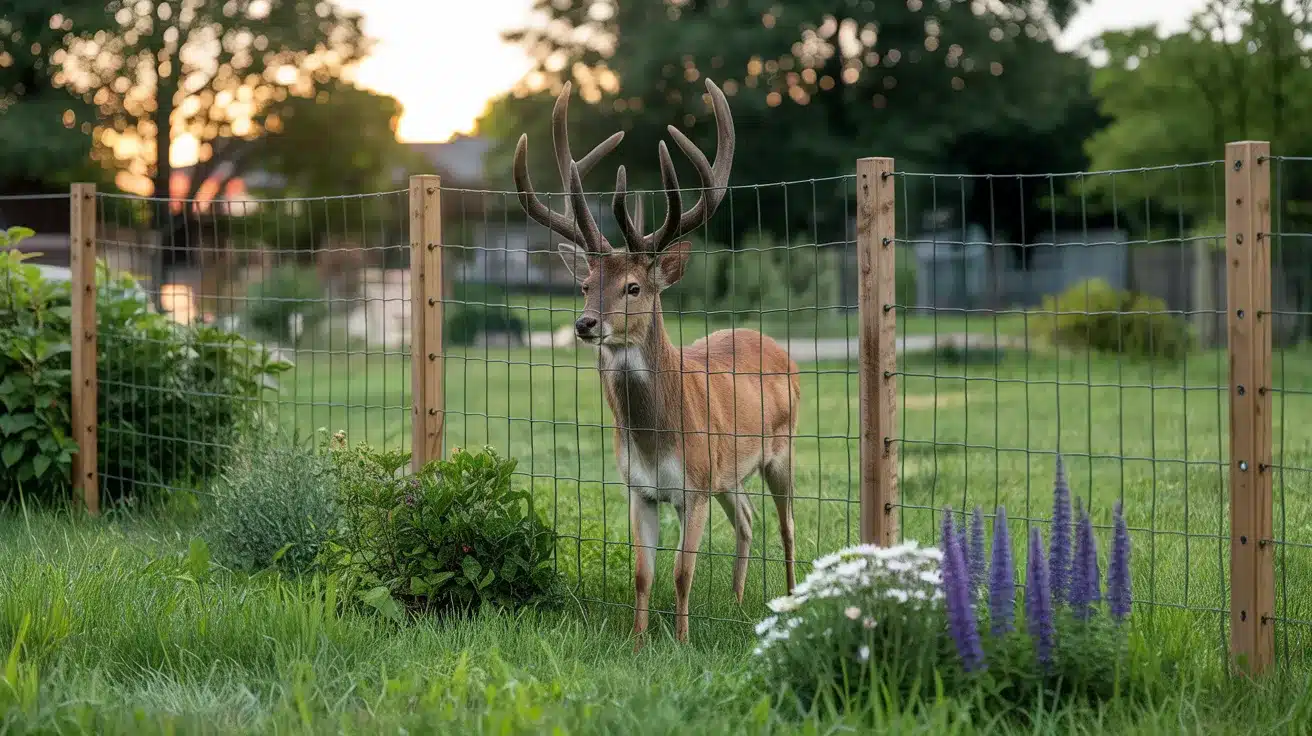Do you watch helplessly as deer feast on your garden overnight? These hungry visitors can strip your yard bare in hours, eating up to 10 pounds of plants daily. Once they find your garden, they return again and again, bringing friends along.
A proper deer fence creates a physical barrier that works day and night, unlike sprays or sounds that deer quickly learn to ignore. The right wall saves you time, money, and frustration by protecting your hard work.
This guide examines effective fence options, from classic wooden styles to nearly invisible mesh, modern metal designs, and living plant barriers.
You’ll learn which materials last longest, which blend best with your landscape, and how to pick the perfect height and style for your needs.
Let’s find the ideal fence to keep deer out and your garden thriving.
Why You Need a Deer Fence?
Deer might seem sweet, but they can destroy your garden overnight. These hungry animals eat almost any plant and can strip your yard bare in just hours. A good deer fence acts as a wall between your valued plants and these four-legged guests.
Without proper fences, deer will return again and again to feast on your hard work. Your yard offers deer an ideal food spot – no hunters, few dangers, and plenty to eat. They love tender young shoots, buds, and flowers.
Some areas have more deer than others, which means you need stronger, taller fences. The right wall saves you time and money by ending the cycle of planting and watching deer eat everything. It also prevents deer from rubbing their antlers on young trees, which can cause them to die.
12 Deer Fence Ideas: Unique Styles and Designs to Consider
Find 12 innovative and practical deer fence ideas, each offering a unique style and design to keep your garden safe while complementing your landscape.
1. Classic Wooden Deer Fencing: A Rustic Approach
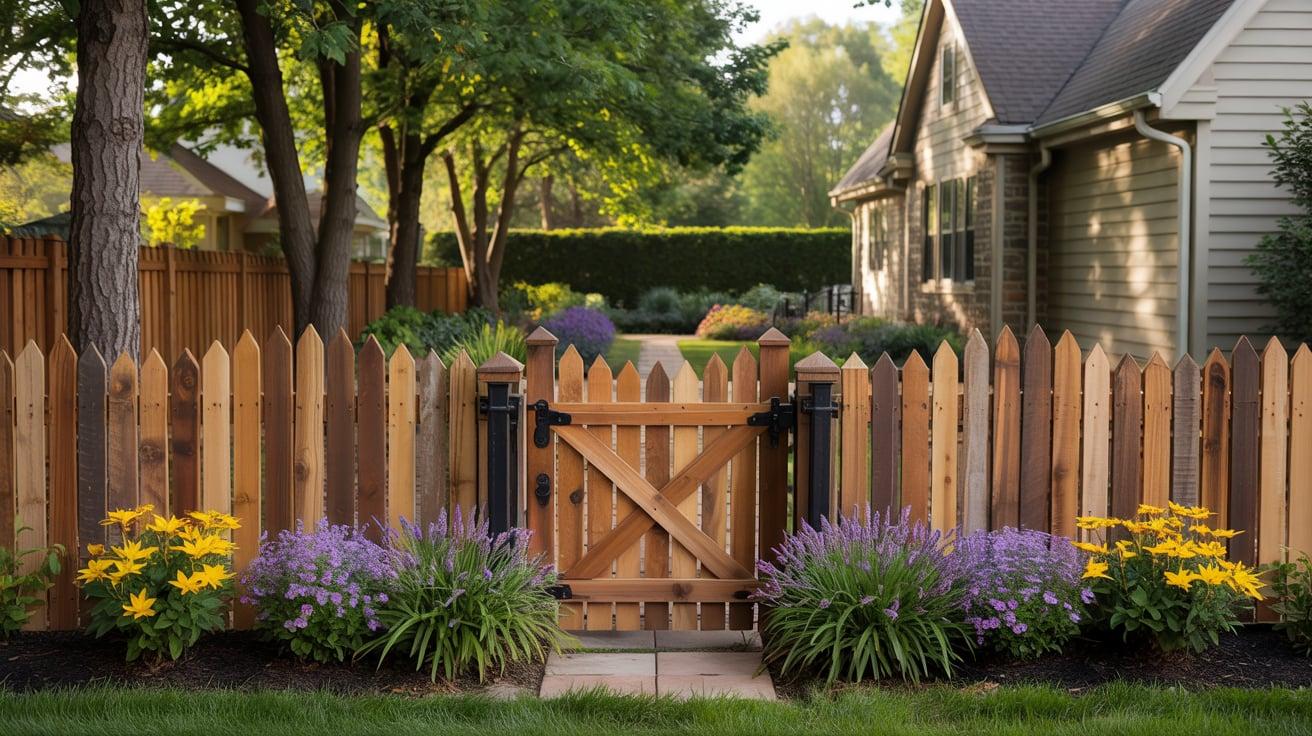
Wooden fences offer a warm, natural appearance that complements most yards and gardens. They stand out for their ability to blend with trees and plants. The wood can be stained in many colors to match your home’s style.
Best for: Homes with country or traditional styles
Upkeep needed: Yearly staining or sealing
Cost range: Medium to high
2. Wire Mesh Fences: Durable and Discreet
Wire mesh fences work well because deer cannot see them clearly from a distance. These fences last for many years and need little care. You can place them around specific plants or your entire yard.
Height tip: Choose 7-8 feet tall for full safety
Viewing quality: Almost see-through from a distance
Weather rating: Stands up to all weather types
3. Electric Fencing: A High-tech Solution
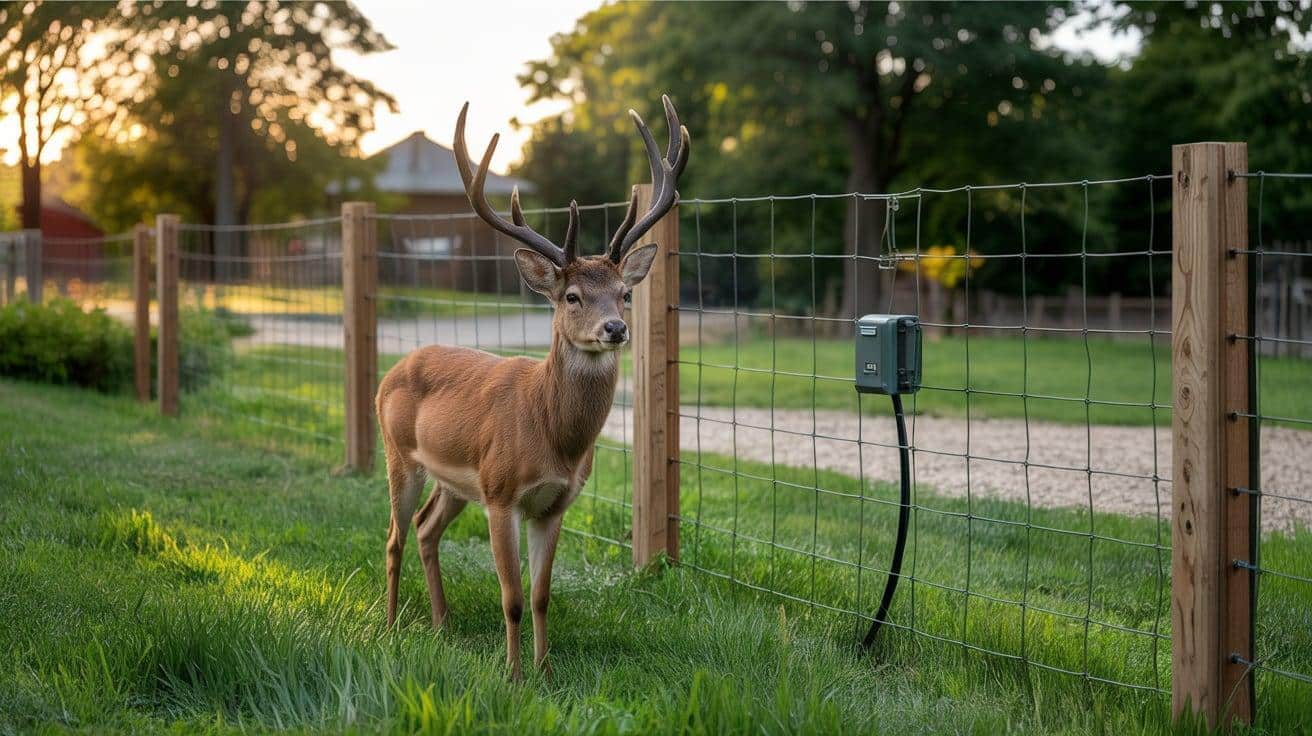
Electric options give a mild shock that teaches deer to stay away. These systems use less space than other fences and can be moved when needed. You can turn them on only during key seasons.
Safety note: Safe for pets when properly set up
Power needs: Solar or standard outlet options
Setup time: Quick to install in just hours
4. PVC Deer Fencing: A Low-Maintenance Alternative
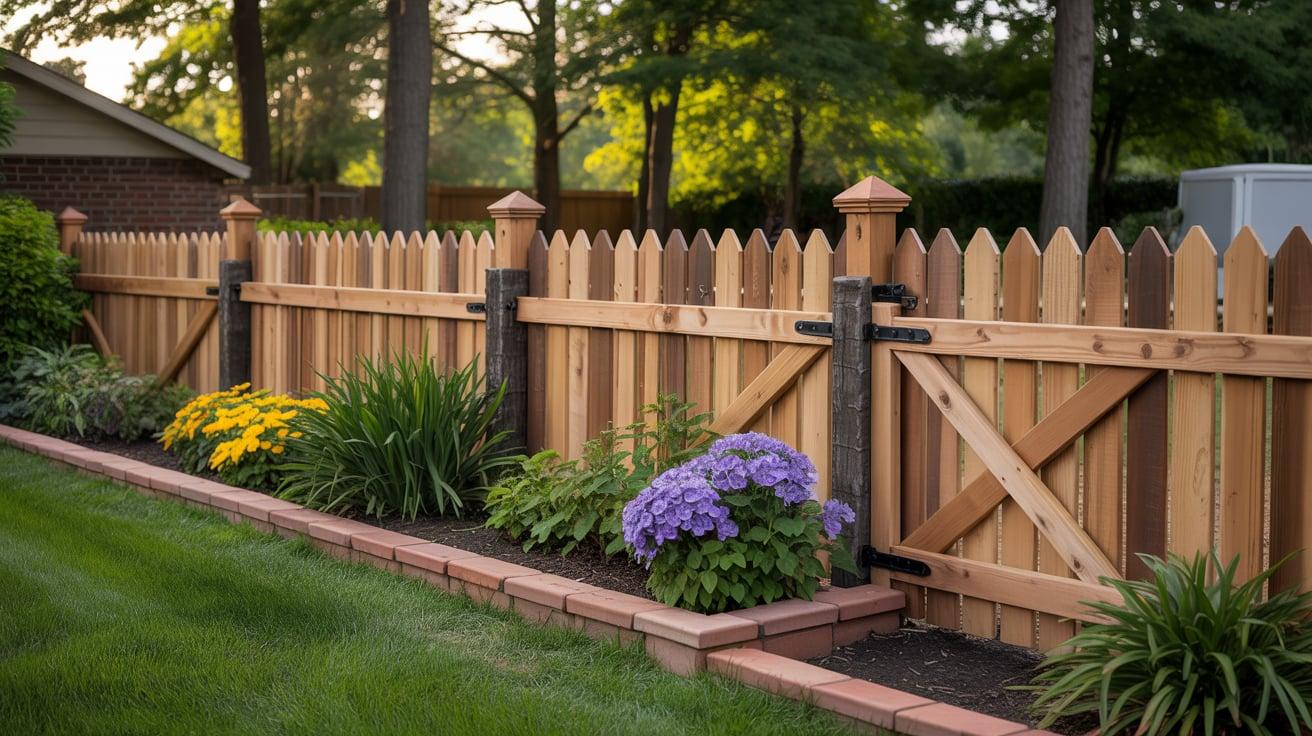
PVC fences stay looking new for years with minimal maintenance. They don’t rot, rust, or fade in the sun. You can hose them down to clean, and they come in many styles that look like wood.
Lifespan: 20+ years without major care
Color options: White, tan, and wood-like tones
Winter bonus: No cracking in cold weather
5. Invisible Deer Fencing: Almost Invisible to the Eye
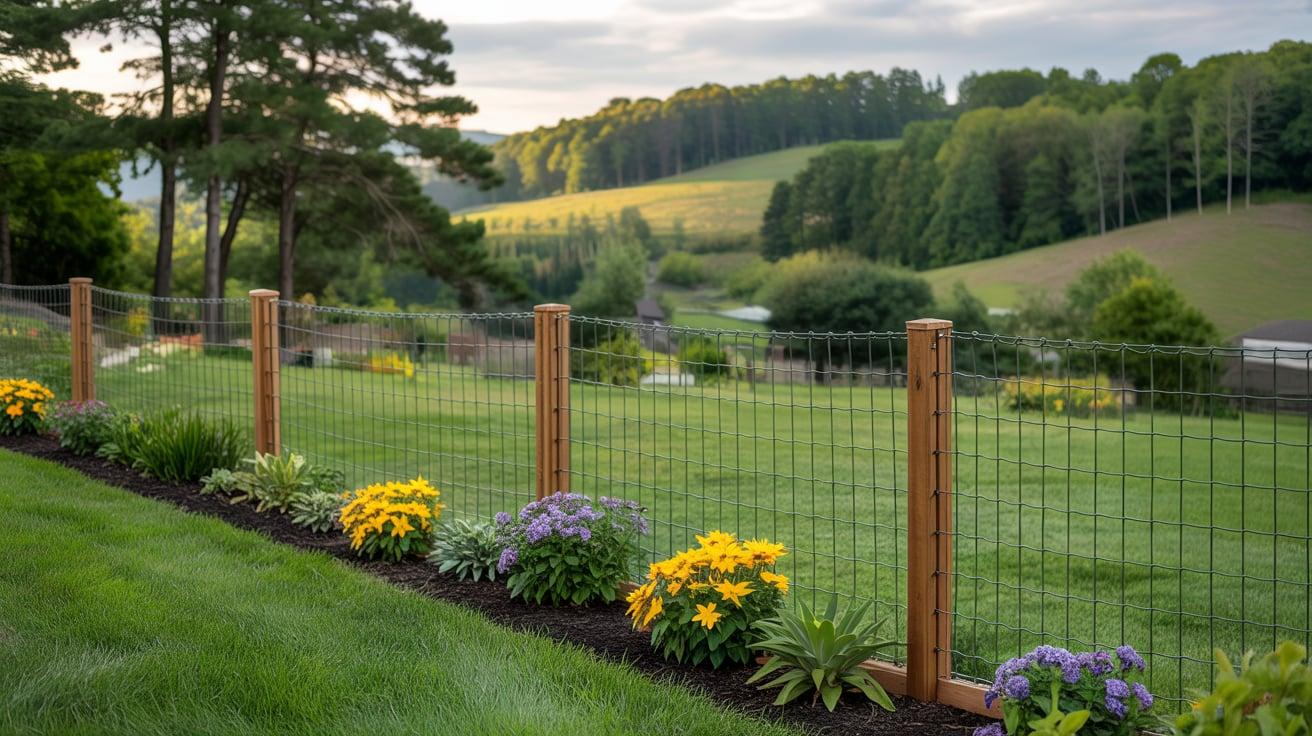
These nearly clear barriers keep your views while blocking deer. Made from thin but strong black nylon or clear mesh, they seem to fade away when viewed from a few steps back.
Sight lines: Keeps views of hills and woods open
Guest reaction: Often not spotted by visitors
Prime spots: Great for homes with scenic views
6. Bamboo Fencing: Eco-Friendly and Stylish
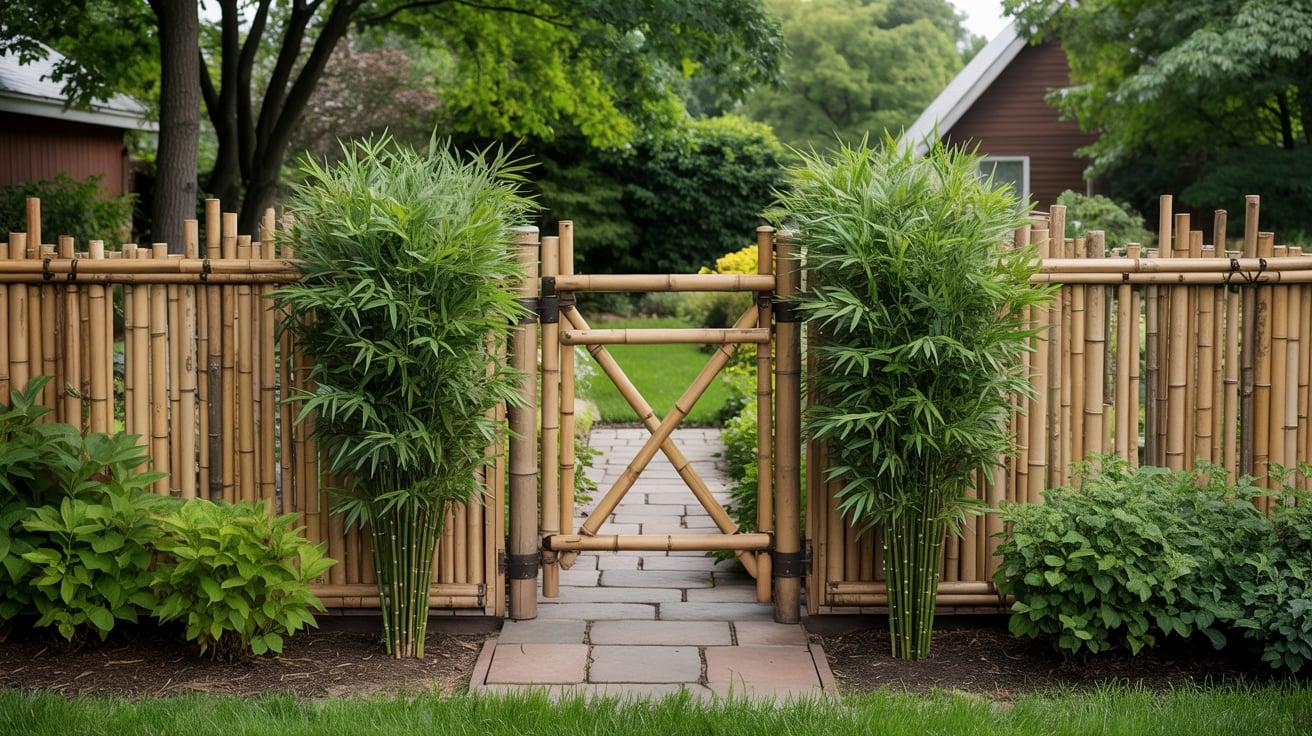
Bamboo grows fast and makes solid fences that last. It boasts a distinctive appearance that complements various garden styles. You can find it in panels or grow it as a living fence.
Green factor: Highly reusable and breaks down naturally
Look at options: Natural tan or treated dark brown
Growth rate: New bamboo fence plants grow very quickly
7. Living Deer Fencing: Creating a Natural Barrier
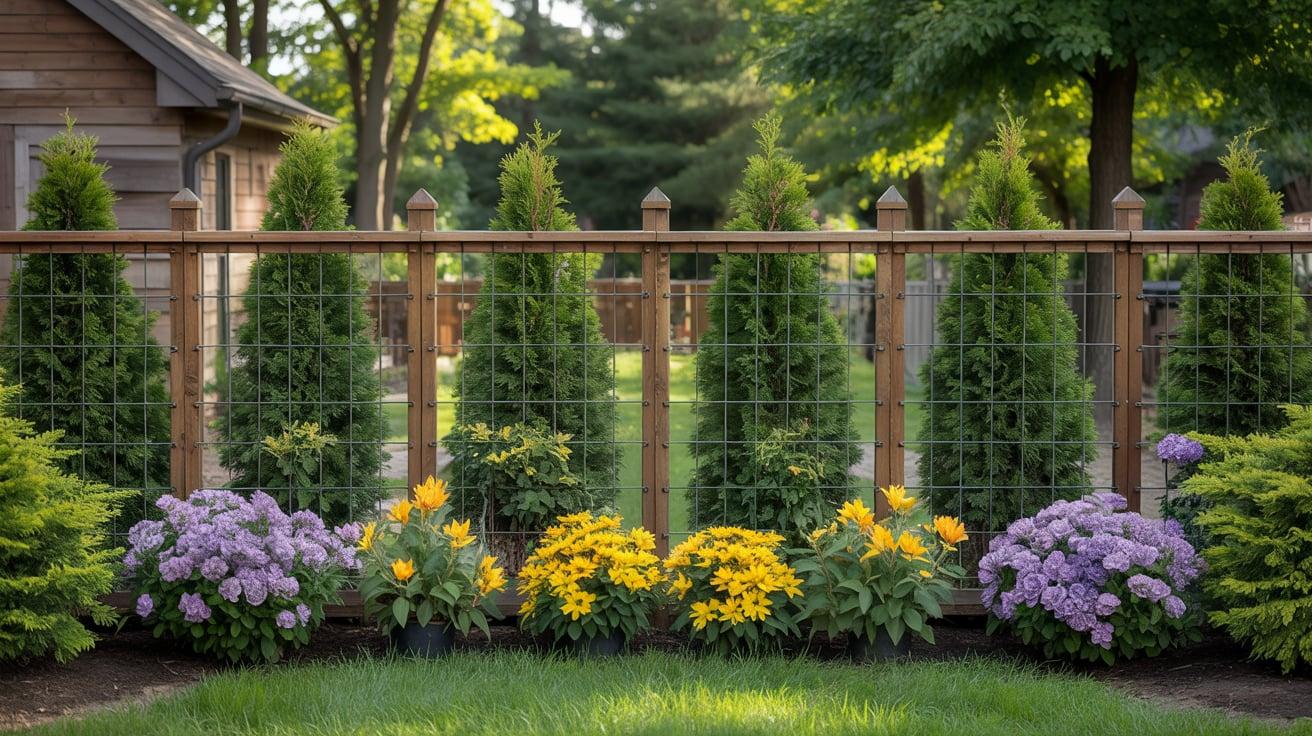
Plants can form walls that deer avoid. Thick shrubs with tough leaves or strong scents will keep most deer away. Your fence grows fuller and strong each year.
Plant picks: Boxwood, holly, and spruce work well
Spacing tip: Plant close together for fewer gaps
Added plus: Homes for birds and small wildlife
8. Metal Deer Fencing: A Modern and Sturdy Option
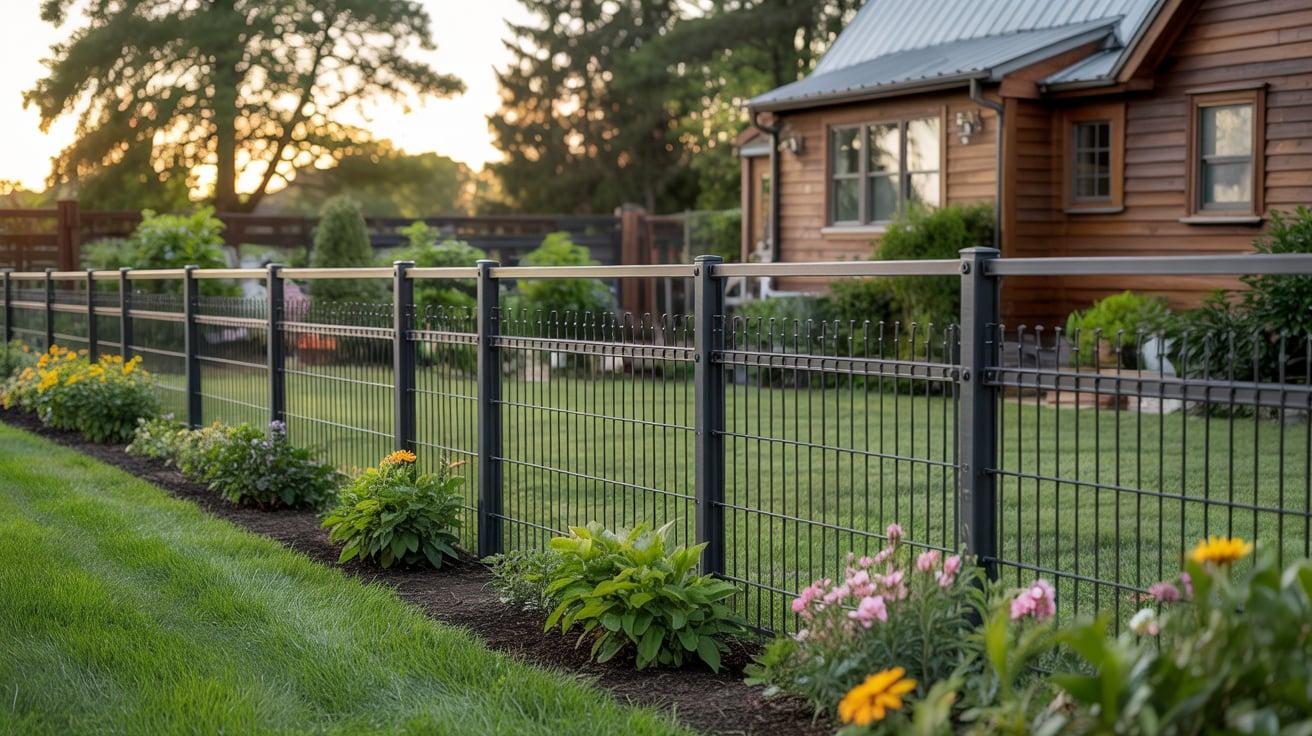
Steel and aluminum fences stand firm for decades. They can be thin yet strong, and some styles have a clean, modern look. You can paint them to match your house or let them darken with time.
Strength rating: Stands up to deer pushing and weather.
Style range: From farm-style to sleek and modern
Long-term value: Often lasts 30+ years with basic care
9. Stone Wall Fencing: A Permanent and Elegant Solution
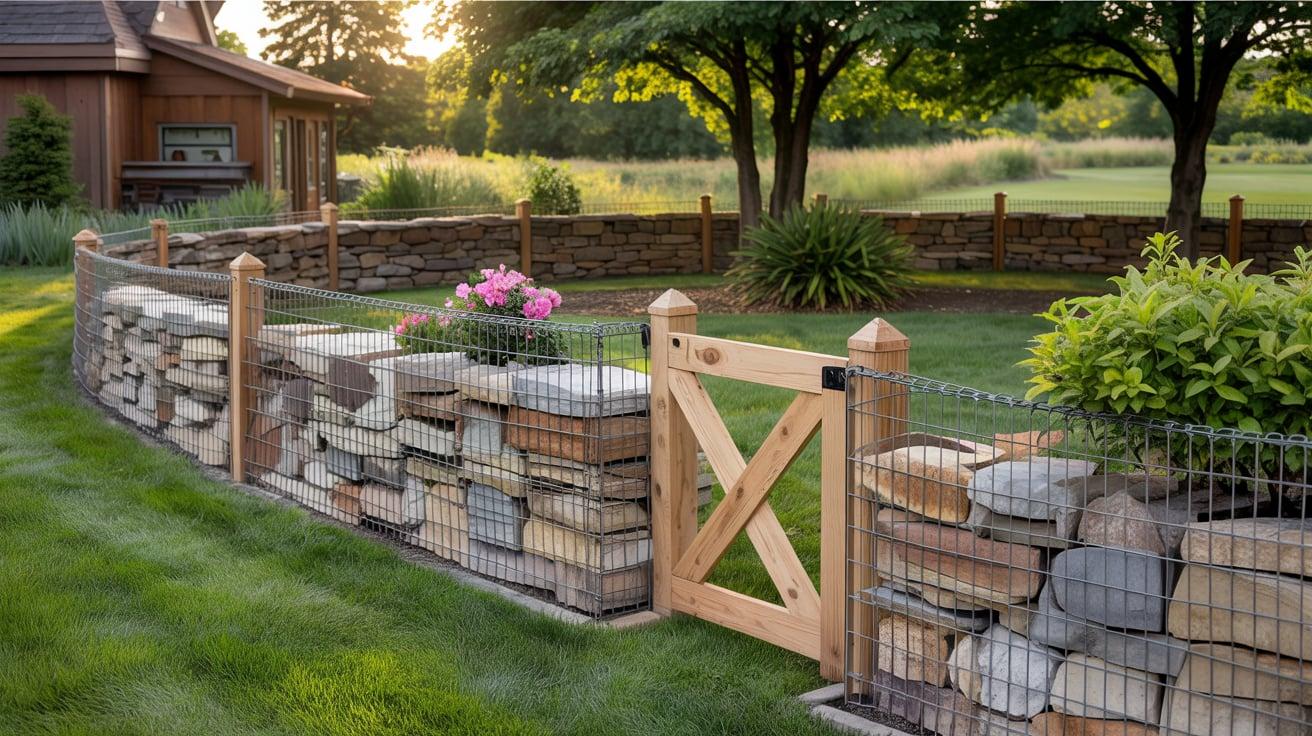
Stone walls last for years and add charm to any yard. They can be built to match old farm walls or made with clean, modern lines. These walls stay put in all weather and seasons.
Added use: Creates spots for small garden beds
Heat benefit: Holds warmth near plants in cool months
Look over time: More charming as moss and plants grow on it
10. Combination Fencing: Mixing Materials for Maximum Effect
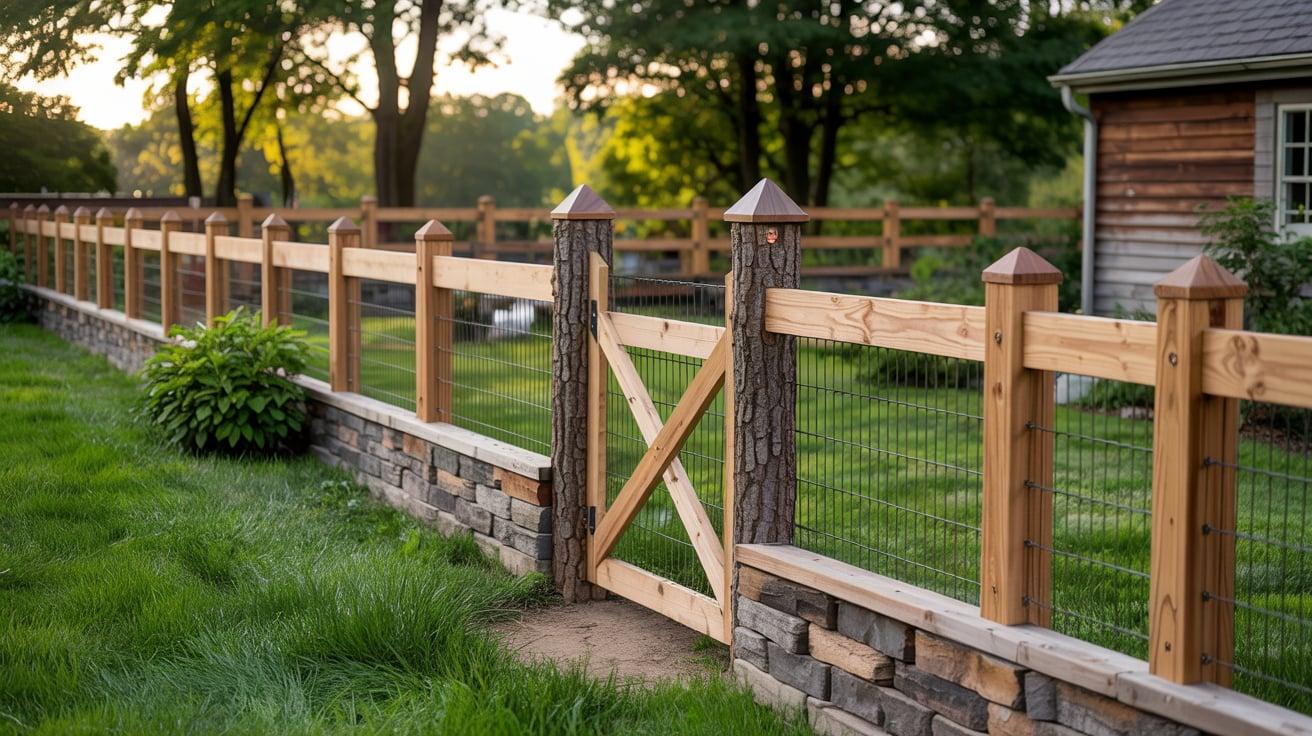
Mix wood posts with wire mesh or stone bases with metal tops to get the best of each type. This method lets you save money while still keeping deer out. You can focus stronger parts where deer most often try to enter.
Cost saving: Use costly items only where most needed
Look factor: More eye-catching than single-type fences
Fix ease: Can update just one part if needed
11. Garden Netting: Temporary but Effective
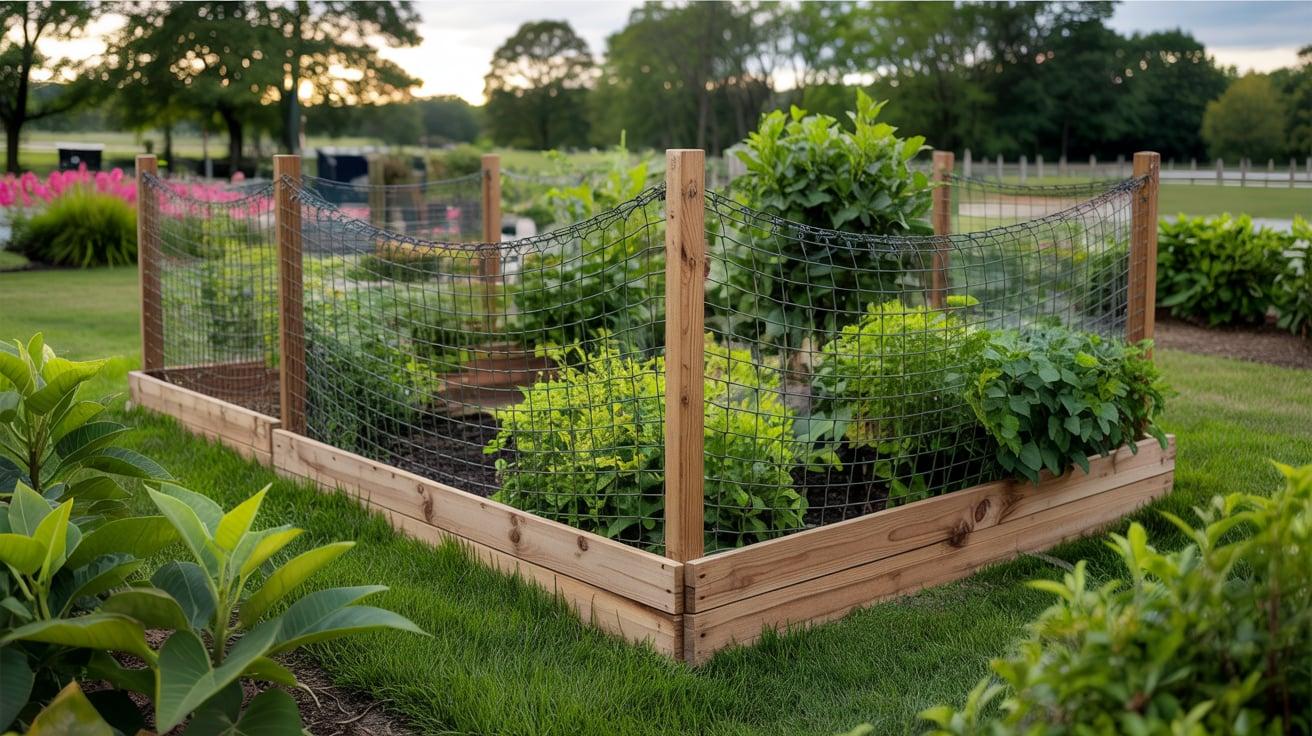
Nets work well for short-term needs or small areas. They store flat when not in use and go up quickly. You can move them as needed to guard new plants or crops that deer love.
Setup speed: Takes minutes to place over plants
Storage plus: Folds into a small space when not used.
Budget pick: Lowest cost option that still works
12. Deer-Resistant Fence Panels: High-tech Designs for Modern Homes
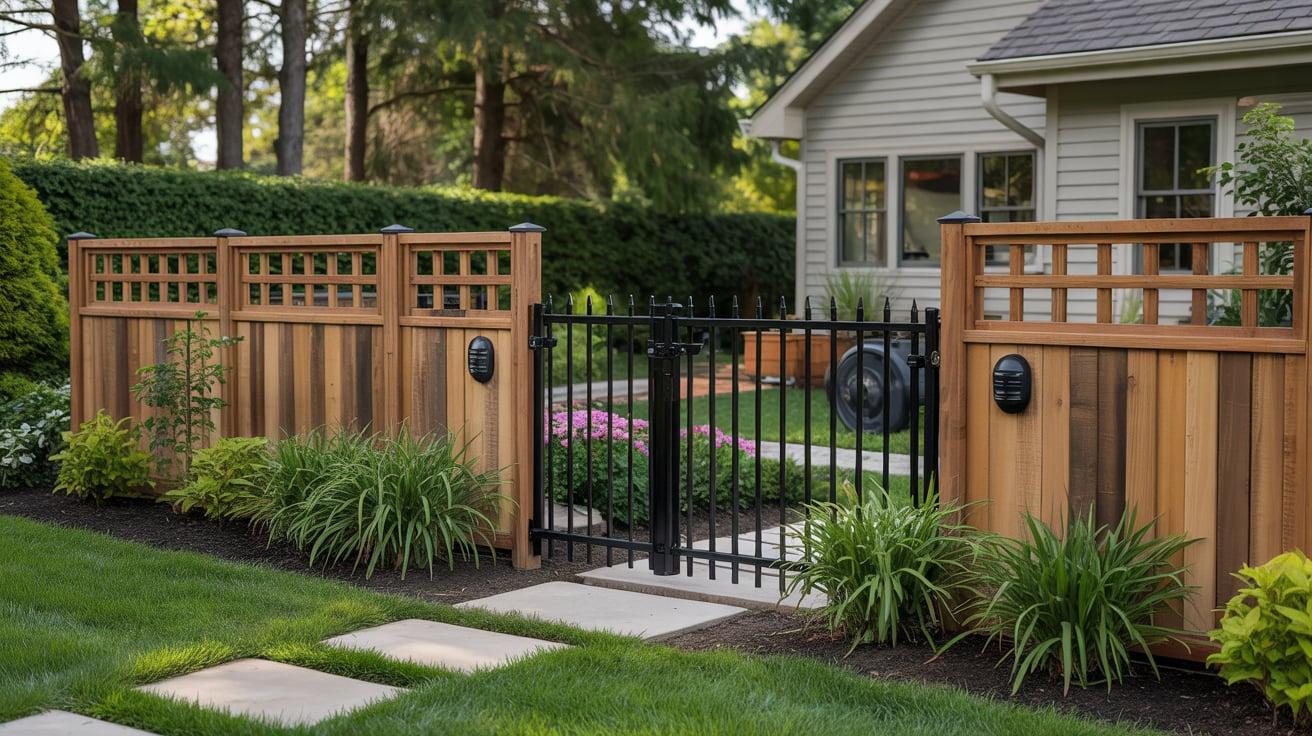
New panel systems utilize smart designs to deter deer. Some tilt at angles deer can’t jump, while others have built-in sounds or scents. You can find styles that match modern homes well.
Tech edge: Some include motion lights or sounds
Look appeal: Clean lines that match new homes
Setup ease: Often snap together with a few tools needed
Deer Fencing Types: Find the Perfect Fit for Your Yard
| Type of Deer Fence | Description |
|---|---|
| Traditional Fencing | Wooden and metal fences that stand the test of time. |
| Mesh and Net Fencing | Different mesh options that blend well into your garden. |
| Electric Fencing | Safe and efficient methods for using electricity to deter deer entry. |
| High Visibility Fencing | Bright-colored or reflective materials that alert deer from a distance. |
Final Thoughts
Selecting the right deer fence is crucial for the success of your garden. The best choice depends on your yard size, budget, and the style of your garden.
Wooden fences offer a warm, natural feel, while wire mesh remains almost invisible. Electric options teach deer to stay away with mild shocks, and PVC needs virtually no care for years.
Remember that deer can jump high, so most fences need to be at least 7-8 feet tall. For optimal results, regularly inspect your fence for gaps or weak spots. Deer find even small openings, so stay alert to these issues.
Your fence serves as a long-term protection for your plants and trees. It stops the cycle of planting and watching deer eat everything. With the right wall in place, you can grow the garden you want without worry.
What fence will you try? No matter which type you pick, the peace of mind is worth every penny. Your plants will stay safe, and you’ll spend more time enjoying your yard instead of fixing deer damage.
Frequently Asked Questions
How Tall Should a Deer Fence Be to Work Properly?
Most experts suggest a height of 7-8 feet to stop deer from jumping over.
Can I Build a Deer Fence Myself or Should I Hire a Pro?
You can install simpler types, such as mesh or netting, yourself, but stone walls and complex systems may require professional installation.
Do Deer Fences Harm the Animals in Any Way?
Most fences block deer without causing harm, though electric ones give mild shocks that teach them to stay away.
How Do I Know if Deer Are the Ones Damaging My Garden?
Look for clean-cut plant stems (not ragged), hoof prints in soil, and damage that’s 2-5 feet above ground.

